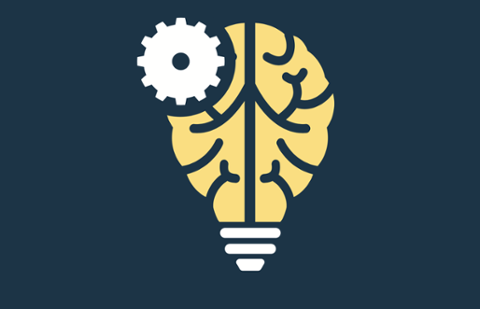Interested in learning more about artificial intelligence (A.I.) and machine learning? There are lots of education options available online, provided you’re a self-starter with the discipline to do a lot of coursework on your own. For example,
Microsoft’s AI School offers a variety of lessons for developers in everything from text analytics and object recognition to custom neural-network models. The content is angled toward data scientists and developers, and heavily emphasizes the use of Microsoft products (of course) in addition to “universal” A.I. skills. It’s also free, although those who want
Verified Certificates will need to pay a fee.
Google
Microsoft, of course, is far from your only option when it comes to learning about A.I. online, particularly with regard to beginner-level material. Like Microsoft, Google’s introduction to A.I. concepts is heavily slanted toward its own tools, but that aside, it’s well worth checking out this
three-hour introduction to deep-learning fundamentals. This course delves into TensorFlow, an open-source software library used in machine-learning applications (i.e.,
neural networks). Speaking of TensorFlow, Google also offers a
machine-learning “crash course” with 25 lessons and 40+ exercises, designed to take roughly 15 hours to complete. (While that course doesn’t require previous knowledge in machine learning, it’s helpful if students have knowledge of programming basics, Python, and intro-level Algebra.)
IBM
IBM’s developerWorks features a number of articles and tutorials on everything from convolutional neural networks to building Internet of Things (IoT) apps with Swift and Watson (IBM’s A.I. platform). As with Microsoft and Google, IBM’s coverage is slanted heavily toward Watson, because the company (obviously) wants developers to make that platform the center of their A.I. workflows.
Apple
If you’re more interested in the theories underpinning practical applications of machine learning,
check out Apple’s Machine Learning Journal, which is updated infrequently but nonetheless provides a deep dive into some of the thorniest issues around A.I., including the privacy of user data in massive datasets and performing “big” calculations on a device as opposed to the cloud.
Bloomberg
Finance and media giant Bloomberg recently launched Foundations of Machine Learning, a free online course for those who already have a mathematics and computer-science background (it's very much aimed at financial analysts, senior project managers, and engineers). Prerequisite knowledge includes linear algebra, multivariate differential calculus, probability theory, and statistics; also important is a computer-science background that includes understanding of data structures, algorithms, and advanced, proof-based mathematics (see, not for beginners).
Check out the lectures (which include video).
OpenAI
OpenAI, a nonprofit foundation devoted to creating an
ethical framework for A.I. development,
offers lots of materials for more advanced A.I. students, including a variety of models and other tools for “training” artificial intelligence and machine learning platforms. The organization regularly publishes research, much of which is actually quite dense; it’s not something you’ll want to explore until you’re very comfortable with the fundamentals of artificial intelligence.
Explore
The good news is, there’s lots of material online for anyone interested in artificial intelligence; in addition to the educational materials offered by the big companies, there are also online courses from
Udacity and
Coursera. The bad news is, many of these online sources are trying to sway you toward particular platforms or tools, often before you’ve actually done a full survey of the A.I. landscape. What’s the solution? If you’re truly willing to devote yourself to learning A.I., you’re going to be spending a lot of time learning—so you might as well explore as many of these courses as possible, from as many companies or entities as possible. Focus on the fundamental building blocks of A.I., and make sure to evaluate which tools actually suit your interests and needs.



